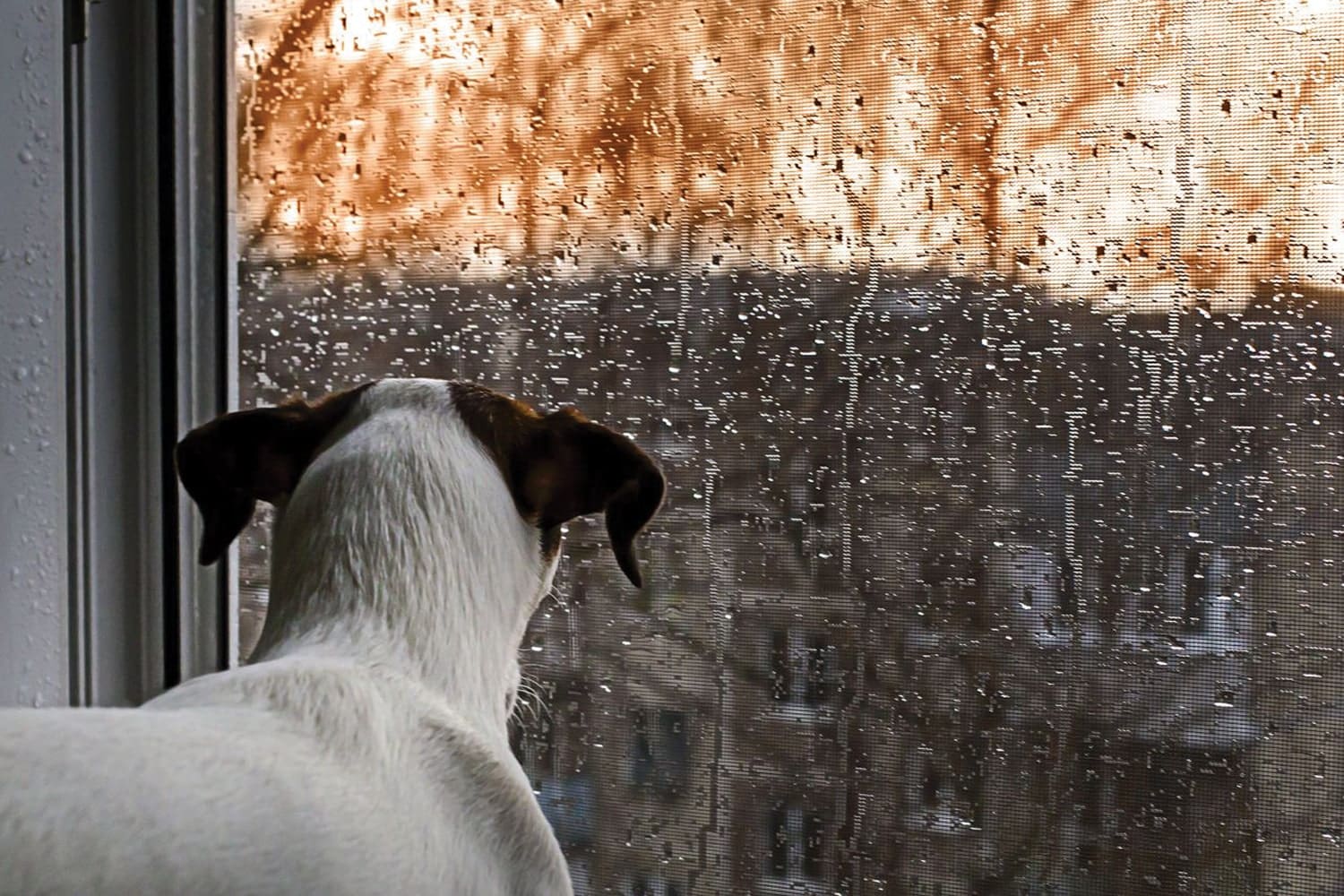Rain or shine? What sort of weather do dogs prefer?

We as people each tend to have a preferred type of temperature and climate that we feel most comfortable in. But do dogs have a favourite type of weather? That depends on each individual dog, and the breed or type of dog you own and even where the breed was first developed can have an acute impact on the answer.
Do dogs have a favourite type of weather? Quite possibly, and it is apt to be different for each dog. Read on to find out more.
Do dogs have a favourite type of weather?
Overall, dogs as a species will be most comfortable in temperate weather, or weather that is very middle of the road; not too hot nor too cold, not too humid nor too dry, and not too windy or too still. While humans can of course recognise preferences in ourselves for different types of weather conditions – which may manifest in various ways, like how some people like to take their summer holidays in hot countries while others prefer visiting
places that don’t get such high temperatures – dogs don’t have such conscious preferences.
However, dogs do often show a marked like or dislike for certain types of weather, and so individually, can potentially be seen to have such preferences.
For instance, some dogs will flatly refuse to go for a walk in the rain, while others might see snow falling and go absolutely mad wanting to go out and play in it!
A lot of what dictates what kind of weather any dog likes comes down to the type of weather that they’re most comfortable in, and this in turn can be dictated to a large extent by their breed and historical origins and uses.
Are some dog breeds more likely than others to like hot weather?
Some dogs are far better able to tolerate hot weather than others, and so will feel comfortable at temperatures other dogs might struggle with. This means that on the flipside, they might start to feel the cold sooner than most too.
Where in the world a dog breed hails from also dictates many of their physical traits, as dogs from different parts of the world evolved, and later, were bred, to thrive within that specific climate.
For instance, dog breeds that hail from hot climates are apt to have short coats to help to ensure they don’t overheat, and even potentially large ears to help to dissipate heat.
Physical traits like these help them to be able to moderate their temperatures and stay cool in hot weather, and so, be more comfortable in it and more likely to enjoy it.
Are some dog breeds more likely than others to like cold weather?
On the flipside, breeds hailing from colder climates will of course be more able to cope with extreme cold and adverse weather, and so will find it more tolerable and even potentially thrive in it.
They will also by design find hotter weather more of a challenge. For instance, the Siberian husky has a thick, multi-layered coat to insulate them against extreme cold and to repel rain and snow, which means they’ll generally be totally happy and at home in even the worst of the British weather. However, they’re apt to find summer a bit too hot.
As well as the coat type, ears once more can provide a clue to origins. Sticking with our example of the husky, they have proportionately quite petite ears to help to ensure they don’t lose too much of the heat they need to retain, and to avoid frostbite!
Breeds from hot climates and with very short fur, however, like the Pharaoh hound, will find even autumn in the UK chilly without a coat.
How selective breeding can shape weather preferences in dogs
The Kennel Club divides the dog breeds that it recognises into groups containing dogs with shared traits; such as certain types of working roles, and toy dogs.
These traits and how they were shaped by selective breeding can dictate weather preferences in dogs too.
For instance, toy dogs are far more likely to be deeply horrified by the idea of going for a walk in the rain than gun dog breeds like the English springer spaniel, which are often very keen to go out and get in a mess regardless of the conditions.
Windy weather can have a marked impact on dogs of all types
How dogs feel about the rain can be quite polarising in each individual, but windy weather is perhaps the type of weather condition most likely to polarise canine opinions.
Some dogs find windy weather not only nothing to worry about but actively enjoyable, as the feeling of being out in the wind, and the effect it has of changing the sights, smells and sounds and blowing things around (like piles of leaves) can be great fun for some dogs.
On the other hand, some dogs will find windy weather uncomfortable, or even alarming. The change in stimulus, the feeling of being buffeted by the wind, and the potential noise it causes in rustling and making things bang around can mean windy weather is alarming for some dogs, who may be flighty or nervous when it’s windy, and not keen to go outside at all.
(Article source: Pets 4 Homes)





